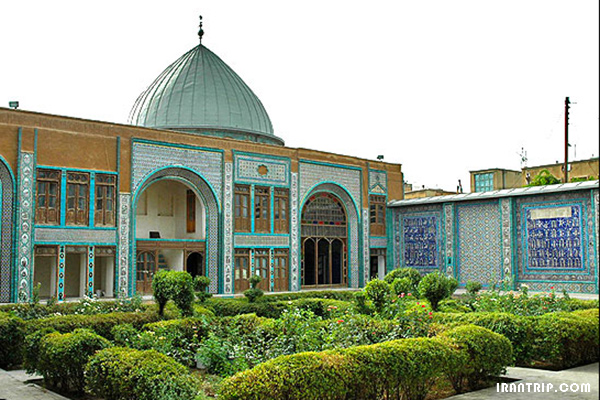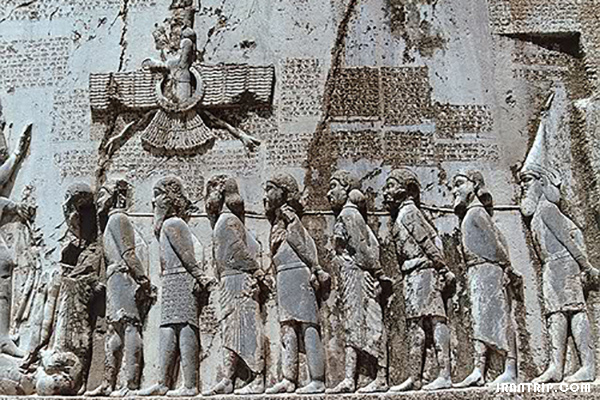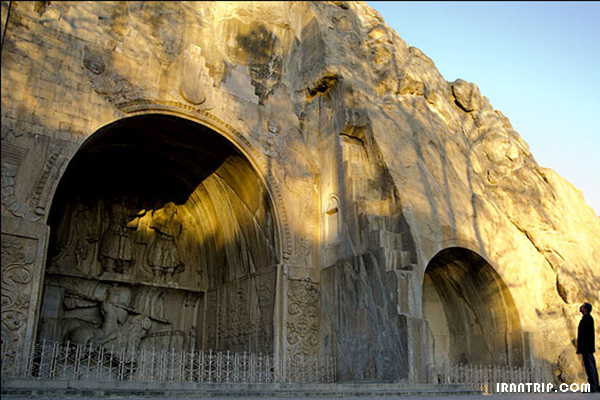Kermanshah is a major cultural and commercial centre in Western Iran and the southern Kurdish region as a whole, considered one of the cradles of prehistoric cultures since the Paleolithic periods and Neolithic times. The main highlights include:
Bisotun (World Heritage Site), cut on a high cliff remains intact one of the most prominent sites in Near Eastern archaeology, the famous rock-relief portraying the Achaemenid king Darius I (r. 522-486) commemorating his victory over his rivals.
Tagh-e Bostan (Prospective World Heritage Site), the Sassanid splendor contained in two magnificent grottos of fine Persian sculpture depicting royal hunting scenes, true narrative murals in stone and almost pictographic in detail.
Temple of Anahita at Kangavar (Prospective World Heritage Site), a major sanctuary dedicated to the Anahita built of enormous blocks of dressed stone of Iranian construction techniques, according to new historical sources and archaeological evidence.

Tekkiye Mo’aven ol-Molk a distinctively Shia dome chamber decorated with an amazing amalgamation of images from the great Karbala battle, Quranic scenes, pre-Islamic deities, Shahnameh kings, European villages and local notables in 19th-century costumes.



